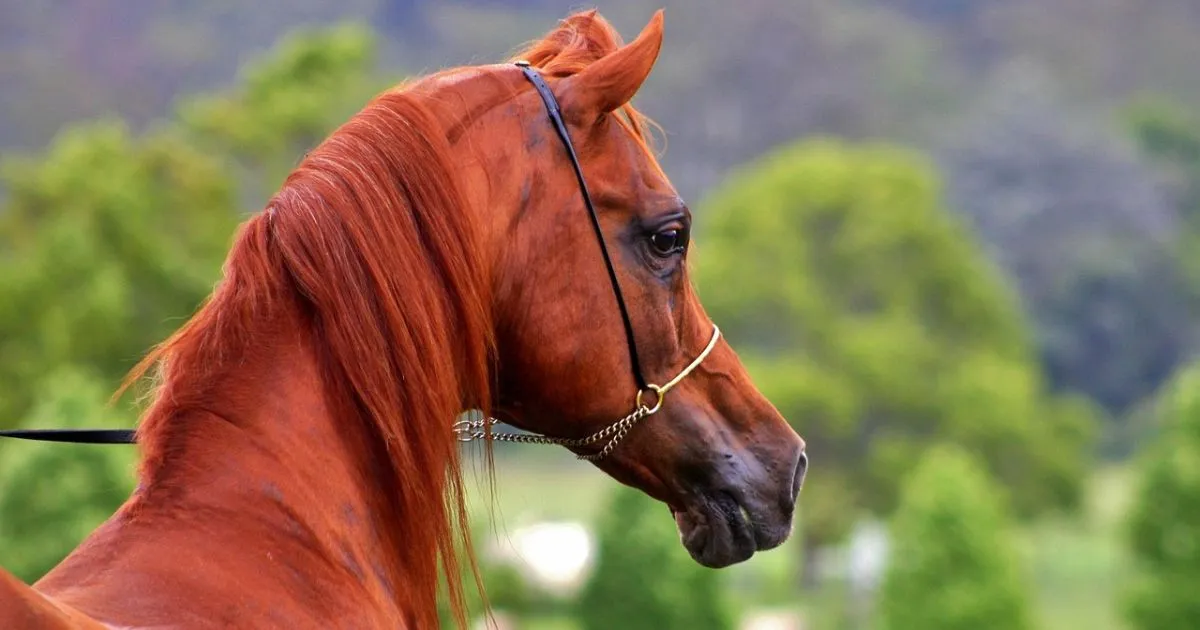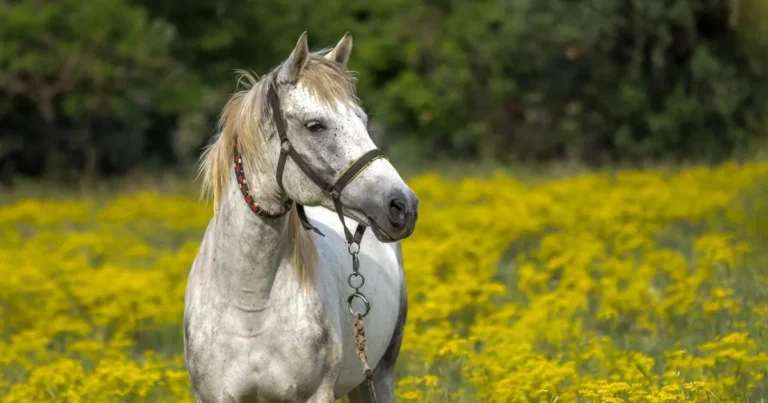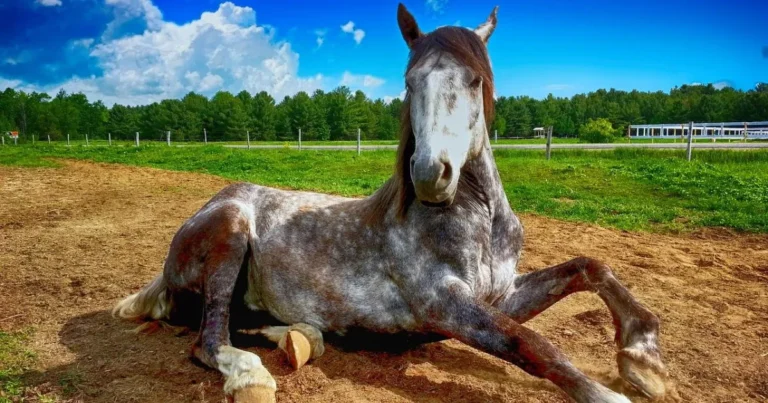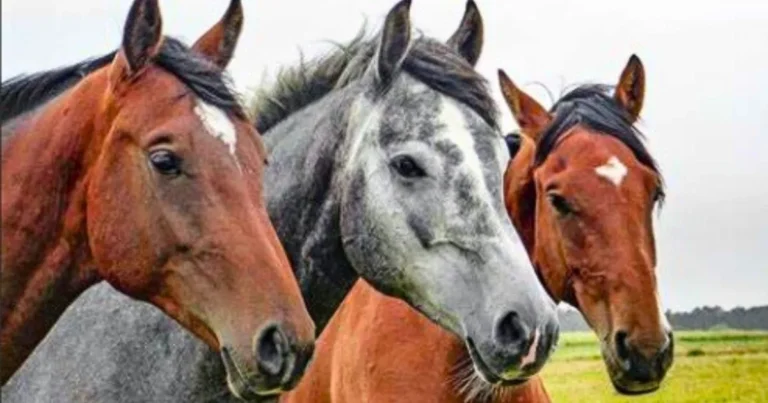Arabian Horse Lifespan: How Long Do They Really Live?
Table of Contents
Every horse lover dreams of a lifelong bond with their horse. Arabian horses are special, offering beauty and long life. They captivate horse fans all over the United States.
Arabian horses live a long time, typically 25 to 30 years. Some even live over 30 years. This makes them stand out among other horse breeds.
Knowing how long Arabian horses live is important for owners. Their long life comes from their strength and genetics. Each horse has its own story of survival and grace.
Starting your journey with Arabian horses means seeing their amazing ability to thrive. From the desert to modern stables, they show nature’s incredible design.
Understanding the Arabian Horse Breed History
The Arabian horse has a long and fascinating history. It is deeply connected to the Arabian Peninsula’s rich culture. These horses have greatly influenced the life expectancy of horses around the world.
Origins in the Arabian Peninsula
Arabian horses first appeared around 4000 B.C. in the harsh deserts of the Arabian Peninsula. They developed strong survival skills over generations. These horses were bred for endurance and could thrive in tough environments.
- Earliest known breeding grounds: Arabian desert regions
- Survival traits: Extreme heat resistance
- Physical characteristics: Compact body, high endurance
The Bedouin Connection
Nomadic Bedouin tribes saw Arabian horses as sacred. They were more than just transportation—they were family. The Bedouins chose breeding pairs carefully to ensure their horses were strong and long-lived.
“A horse is a gift from Allah, a blessing of strength and spirit” – Traditional Bedouin Saying
Spread to Modern World
As trade routes grew, Arabian horses spread to new lands. Their genetic influence helped create many modern breeds. This greatly affected horse life expectancy and breeding standards globally.
- Europe: Introduction through military conquests
- Americas: Imported during colonial expansion
- Global breeding programs: Genetic refinement
Physical Characteristics of Arabian Horses
Arabian horses are known for their unique looks. They have traits that help them live long lives. Their body shape and features have changed over time to fit harsh desert environments.
They have some amazing physical traits that make them stand out. These traits can affect how long they live:
- Distinctively dished facial profile with wide-set eyes
- Exceptionally high tail carriage
- Long, gracefully arched neck
- Compact body structure
- Unique skeletal configuration
Arabian horses have a special skeletal setup. They have 23 vertebrae, unlike most horses with 24. This makes them agile and strong. It also helps them stay healthy and perform well.
Their head shape is another interesting feature. They have big nostrils and a small muzzle. These traits come from their desert origins. They’re not just for looks; they show the breed’s long history of survival and success.
“The Arabian horse’s physical characteristics are a testament to nature’s incredible design for survival and performance.” – Equine Research Foundation
Knowing about these traits helps us see why Arabian horses are so admired. They are known for their strength, beauty, and long lives in the horse world.
Average Life Expectancy and Longevity Factors
Knowing how horses age is key for Arabian horse owners. They want to give their horses the best care. Arabian horses live long and stay healthy, thanks to their special traits.
Arabian horses usually live between 25 and 30 years. With the right care, they can live even longer. It’s important for owners to keep track of their horse’s years to ensure a good life.
Key Factors Influencing Longevity
Several important things affect an Arabian horse’s life span:
- Genetic predisposition
- Quality of nutrition
- Regular veterinary care
- Exercise and mental stimulation
- Living environment
Exceptional Longevity Potential
Some Arabian horses live way beyond the usual age. Exceptional cases show that with careful care, they can live over 30 years. Vets say it’s because of their strong genes and their ability to thrive in harsh desert conditions.
Age Comparison and Monitoring
It’s important to keep an eye on how horses age. Regular vet visits, good food, and careful care help them live longer. This way, Arabian horses can reach old age in good health.
How Long Does a Horse Lives: Arabian vs Other Breeds
Arabian horses are known for living a long time. They can live between 25-30 years. This is longer than many other horse breeds.
Different horse breeds live for varying lengths of time. This is due to their genetics, care, and environment. Let’s look at how Arabian horses compare to other breeds:
| Horse Breed | Average Lifespan | Longevity Characteristics |
|---|---|---|
| Arabian | 25-30 years | Exceptional endurance, robust genetics |
| Thoroughbred | 20-25 years | Athletic but more prone to health issues |
| Quarter Horse | 25-30 years | Sturdy breed with good overall health |
| Appaloosa | 22-28 years | Resilient with moderate genetic diversity |
Several factors help Arabian horses live long:
- Historically selective breeding practices
- Strong genetic resilience
- Adaptive physiological characteristics
- Efficient metabolic processes
Your Arabian horse’s lifespan depends on individual care, nutrition, and genetic predispositions. Regular vet visits and good care can extend their life. This way, they can be your companion for many years.
Essential Care for Maximum Lifespan
To ensure your horse lives a long and healthy life, you need to give them dedicated care. This includes good nutrition, enough exercise, and keeping them healthy. All these things are important for your horse’s well-being.
Good care can really help your horse live longer. Every part of your horse’s day is important for their health and how long they might live.
Proper Nutrition Requirements
What your horse eats is very important for their health. A balanced diet gives them the nutrients they need and helps keep their immune system strong. This is key for a long, healthy life.
- Provide high-quality hay and pasture grass
- Ensure fresh, clean water is always available
- Consider age-specific nutritional needs
- Consult an equine nutritionist for personalized diet plans
Exercise and Activity Needs
Exercise is crucial for your horse’s health. It keeps their muscles strong, their heart healthy, and their mind sharp. Regular exercise is a big part of keeping your horse healthy for a long time.
| Age Group | Recommended Exercise | Duration |
|---|---|---|
| Young Horses | Light riding, groundwork | 30-45 minutes daily |
| Adult Horses | Varied training, trail rides | 45-60 minutes daily |
| Senior Horses | Gentle walking, light exercise | 20-30 minutes daily |
Regular Health Monitoring
Keeping your horse healthy is important for their long life. Make sure they see the vet regularly and watch for any changes in how they act or look.
- Annual comprehensive veterinary examinations
- Dental care every 6-12 months
- Vaccination updates
- Parasite prevention protocols
By following these care tips, you can help your Arabian horse live a long, happy, and healthy life.
Common Health Issues Affecting Lifespan
Knowing about health problems can really help with how long Arabian horses live. These amazing animals face many health issues. These can affect how long they live.
Arabian horses have special genetic problems that need care. Some big health issues include:
- Severe Combined Immunodeficiency (SCID) – A genetic condition that weakens the horse’s immune system
- Cerebellar Abiotrophy (CA) – A neurological disorder affecting coordination
- Metabolic conditions like Equine Metabolic Syndrome (EMS)
- Respiratory problems such as Heaves
Spotting health problems early is very important. Regular vet visits can catch issues early. This can help your Arabian horse live longer and better.
Preventing health problems is crucial. You should:
- Do genetic tests before breeding
- Have regular vet checks
- Feed a balanced diet
- Make sure they get enough exercise
- Keep stress low
“Knowledge and prevention are the best tools for protecting your Arabian horse’s health and longevity.” – Equine Health Experts
Even with these health challenges, many Arabian horses live long, happy lives. Taking care of your horse and knowing about health issues can really help. It can make a big difference in their life and health.
Nutrition and Diet Impact on Longevity
Proper nutrition is key for Arabian horses as they age. What your horse eats affects its health and how long it lives. Knowing what they need can help them live longer and better.
Daily Dietary Requirements
Arabian horses need a special diet because of their unique metabolism. Their food should keep them full of energy and healthy. Important parts include:
- High-quality forage (hay and fresh grass)
- Carefully measured grain portions
- Essential minerals and vitamins
- Consistent water intake
Supplementation Needs
Supplements can fill gaps in your Arabian horse’s diet. Talk to a vet nutritionist to make a plan. It should help with:
- Joint health
- Digestive function
- Immune system support
- Coat and hoof condition
Feeding Schedule Importance
Arabian horses have small stomachs and need to eat often. Eating small meals all day keeps their digestive system healthy. Try for 2-3 meals a day, with fresh water always available. Slowly change their diet to keep their stomachs happy.
“Nutrition is the foundation of your horse’s health and longevity.” – Equine Nutrition Expert
Environmental Factors and Living Conditions
Your Arabian horse’s lifespan depends a lot on its living environment. The right housing and environmental conditions can greatly affect its health and longevity.
Arabian horses do best in well-managed living spaces. You have several housing options, each with its own benefits:
- Pasture Living: Offers natural movement and social interaction
- Barn Stabling: Provides protection from extreme weather
- Mixed Arrangement: Combines outdoor and indoor living
When picking a living environment, consider these key factors that affect horse lifespan:
- Adequate shelter from harsh weather conditions
- Proper ventilation to prevent respiratory issues
- Sufficient space for movement and exercise
- Protection from predators and environmental stressors
The climate is also very important for your horse’s health. Extreme temperatures can stress Arabian horses, shortening their lifespan. Make sure your horse has:
- Shade during hot summers
- Warm shelter during cold winters
- Access to fresh water
- Protection from wind and rain
Herd dynamics and social interaction are also key. Arabian horses are social animals who need companionship. A stress-free environment with minimal disruptions can help them live longer and healthier lives.
Genetic Factors Influencing Arabian Horse Lifespan
Understanding the genetics of Arabian horses is key to knowing their lifespan. Genetic factors greatly affect how long a horse can live, especially in this breed.
Arabian horses have unique genes that impact their longevity and health. Some inherited conditions can shorten their life if not managed well.
- Severe Combined Immunodeficiency Disorder (SCID)
- Cerebellar Abiotrophy (CA)
- Lavender Foal Syndrome (LFS)
It’s important for breeders to breed responsibly to tackle these genetic issues. Genetic testing helps identify health risks before breeding. This way, breeders can avoid passing on bad genes.
The Arabian horse’s genetics also make it hardy. Selective breeding techniques can boost good genes and lower the risk of bad ones.
Genetic screening is not just about preventing disease, but about promoting the strongest possible lineage for future generations of Arabian horses.
By managing genetics well, you can help your Arabian horse live its longest life. Regular vet visits and genetic tests are crucial for your horse’s long-term health.
Best Practices for Senior Arabian Horse Care
As your Arabian horse gets older, it needs special care to live longer. This ensures they stay healthy and happy. It’s important to focus on their comfort and well-being.
Senior Arabian horses need a diet and health plan just for them. Your vet can help make a plan. This plan will help with age-related issues and keep your horse feeling good.
- Adjust diet to match reduced metabolic activity
- Implement gentle exercise routines
- Provide regular veterinary check-ups
- Monitor dental and joint health
Good nutrition is key for older horses. Consider specialized senior horse feeds that are easy to digest. These feeds also have extra nutrients for joints, digestion, and overall health.
Keeping your horse’s mind active is also important. They need gentle social time, light training, and a regular routine. This keeps them happy and engaged.
- Maintain daily social interactions
- Provide mental enrichment activities
- Create a comfortable living environment
By showing love and care, you can help your Arabian horse live a longer, happier life. This care will support their aging process and keep them active for years.
Conclusion
Arabian horses are truly special, living up to 25 to 30 years with the right care. Understanding their needs is key to helping them live their best life. This ensures they reach their full potential age.
Genetics, diet, environment, and health care all affect an Arabian horse’s life span. With the right care, you can help your horse live longer and happier. Regular vet visits, a balanced diet, and enough exercise are crucial.
Spending time and money on your Arabian horse’s health does more than just extend their life. It also makes their life better. Every horse is different, and knowing this helps you create the best life for them.
Whether you’re new to Arabian horses or have been around them for a while, knowing they can live long and healthy lives is rewarding. Your care and dedication will help them thrive through all stages of life, making your time together fulfilling.






